We recently asked the BuzzFeed Community to share what their significant others have done that helped ease their mental illnesses. Here are some things that you can do to help your partner (and anyone, really) who is going through a hard time:
1. Be patient with them.
"Before I started dating my boyfriend, I was agoraphobic and would never get into cars with people. After about six long months with a lot of practice and A LOT of patience, he brought me out of my comfort zone and finally to his house. My boyfriend has been helping me out of my comfort zone over the last three years, and we’re still going strong!" —meganc4d25442ea
2. Give them space if they need time to themselves.
"Like most of my dad's side of the family, I have bipolar disorder. My husband is really great because when he sees that I'm getting to a bad place mentally, he offers to take our toddler out for a bit so I can have some time to myself. Just having him take our son out to the park for an hour or two so I can have quiet time makes a such a huge difference!" —jamesmoriarty
3. Reassure them they're okay.
"Whenever my depression kicks in or I can feel myself about to panic, my boyfriend will hold me. He repeatedly tells me to breathe and that everything will be okay. Afterwards, he always suggests we get froyo or smoothies because he knows they’re my favorite. Sometimes you just need to hear that you’ll be okay out loud. And a smoothie doesn’t hurt either." —katarinar4ece229c3
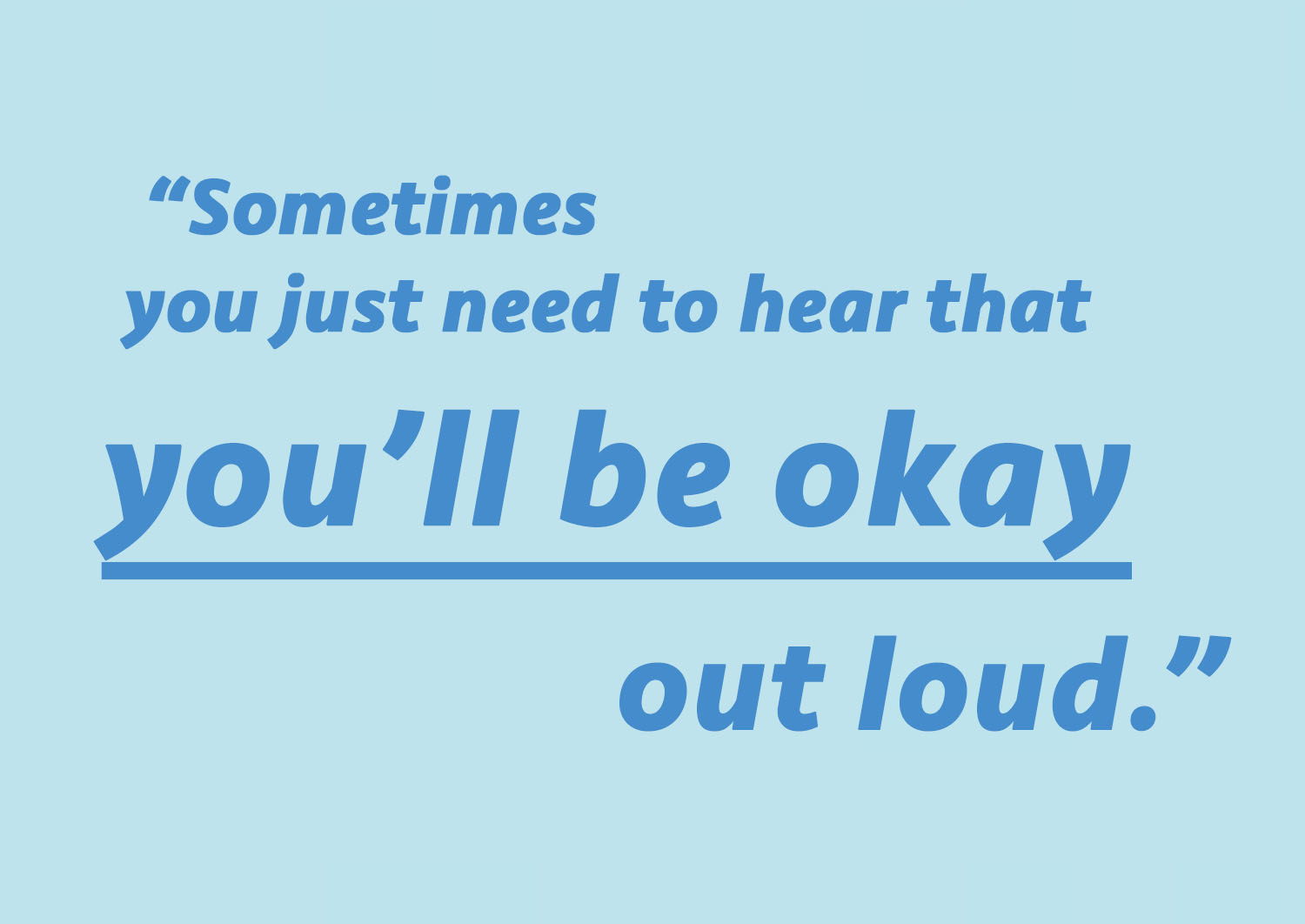
4. Learn their symptoms, and think of little ways you can help.
"I used to do this thing where if I was anxious about something, I would dig my nails into my skin. I didn't even realize I was doing it at first, but he noticed right away. Immediately, he gave me his hand to hold just so I wouldn't hurt myself. It was such a small act of kindness and patience, but his selflessness and unwavering support was and has been a huge influence in my journey to getting better." —leahmroy
5. Don't make them feel embarrassed or ashamed for having a mental illness.
"The most amazing thing my boyfriend did for me was accept me. While he hasn’t personally dealt with mental health issues, he didn’t judge me or think less of me, or think I was being dramatic. He is wonderful at pointing out days or moments where he sees I am making progress. Oftentimes he notices my progress more than I do." —caseyc471932c25
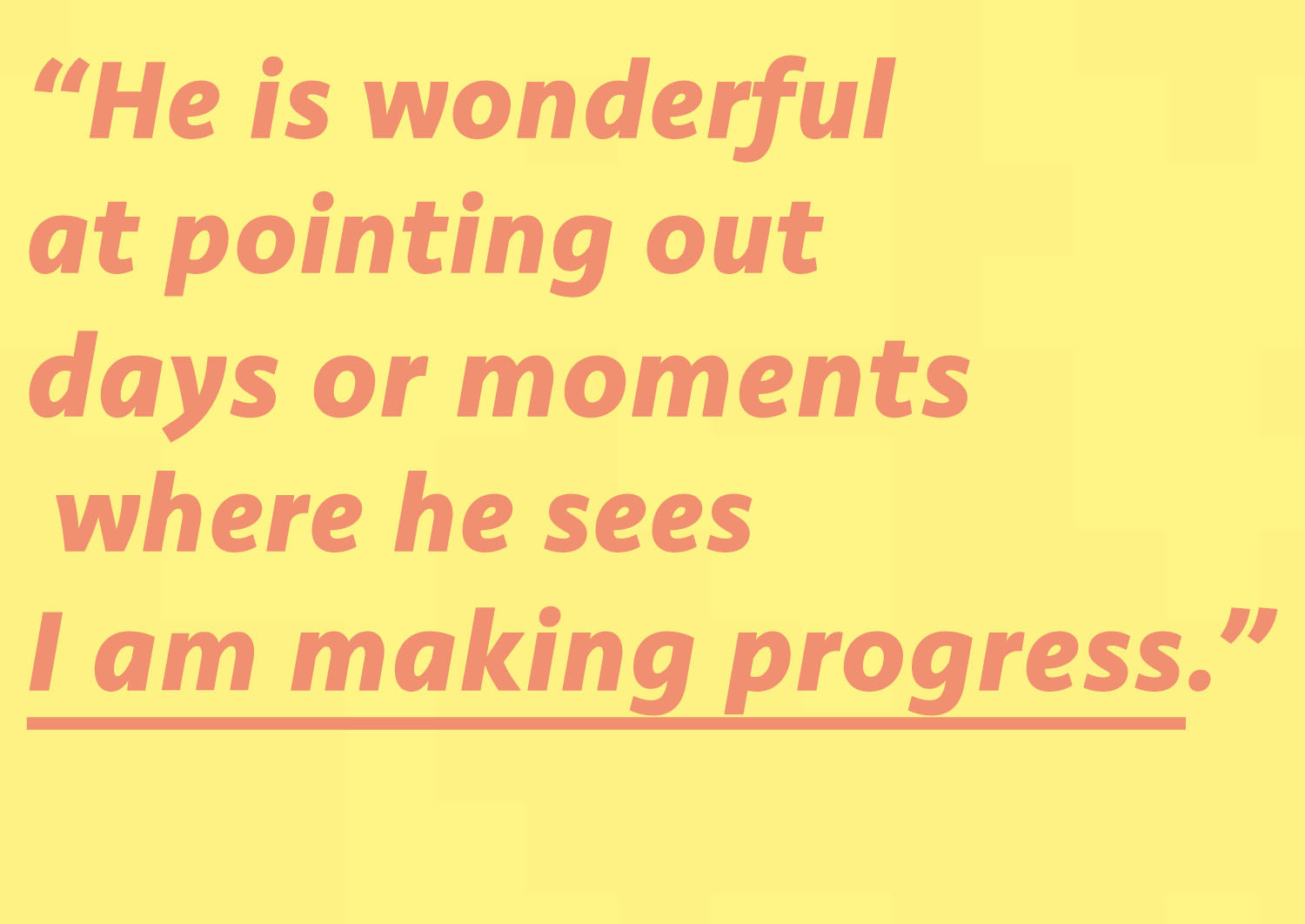
6. Learn with them throughout their recovery.
"When I was first diagnosed with an eating disorder, my boyfriend had a lot of trouble understanding what I'd been going through. He asked if he could meet with me and my doctor so that she could answer his questions. He also attended all of the family parts of my treatment, and constantly made sure he was doing what he needed to in order to support me throughout my recovery." —clairebnewman
7. Have a code word for when they're feeling off.
"My girlfriend and I happen to both have a mental illness. We have our own special code where we can tap each other’s hands a certain amount of times to ask if the other’s okay, if we’re anxious, or if we feel a little off. It helps to be able to ask if we’re okay without having to say it out loud in case one of us is super anxious or upset and doesn’t want anyone else to know." —meanreed08
8. Find something fun (and low risk) to do together.
"When my depression cloud is really dark over me, my husband puts on America's Funniest Home Videos or takes me to the bookstore. He's the best." —jessl44432cacd
9. Encourage them to communicate openly about what they're feeling.
"After I started dating my boyfriend, I realized how important it is to grow as a person and be able to be your own light. I also recognized that in order to be truly myself and help our relationship grow, I needed to be completely open and honest with him about all that makes me, me. After nervously telling my boyfriend about my past struggles, I found I felt more confident. And instead of feeling judged or thinking I was weird, he embraced me for me and reassured me that these things don’t change his feelings for me." —amylynnm433301477
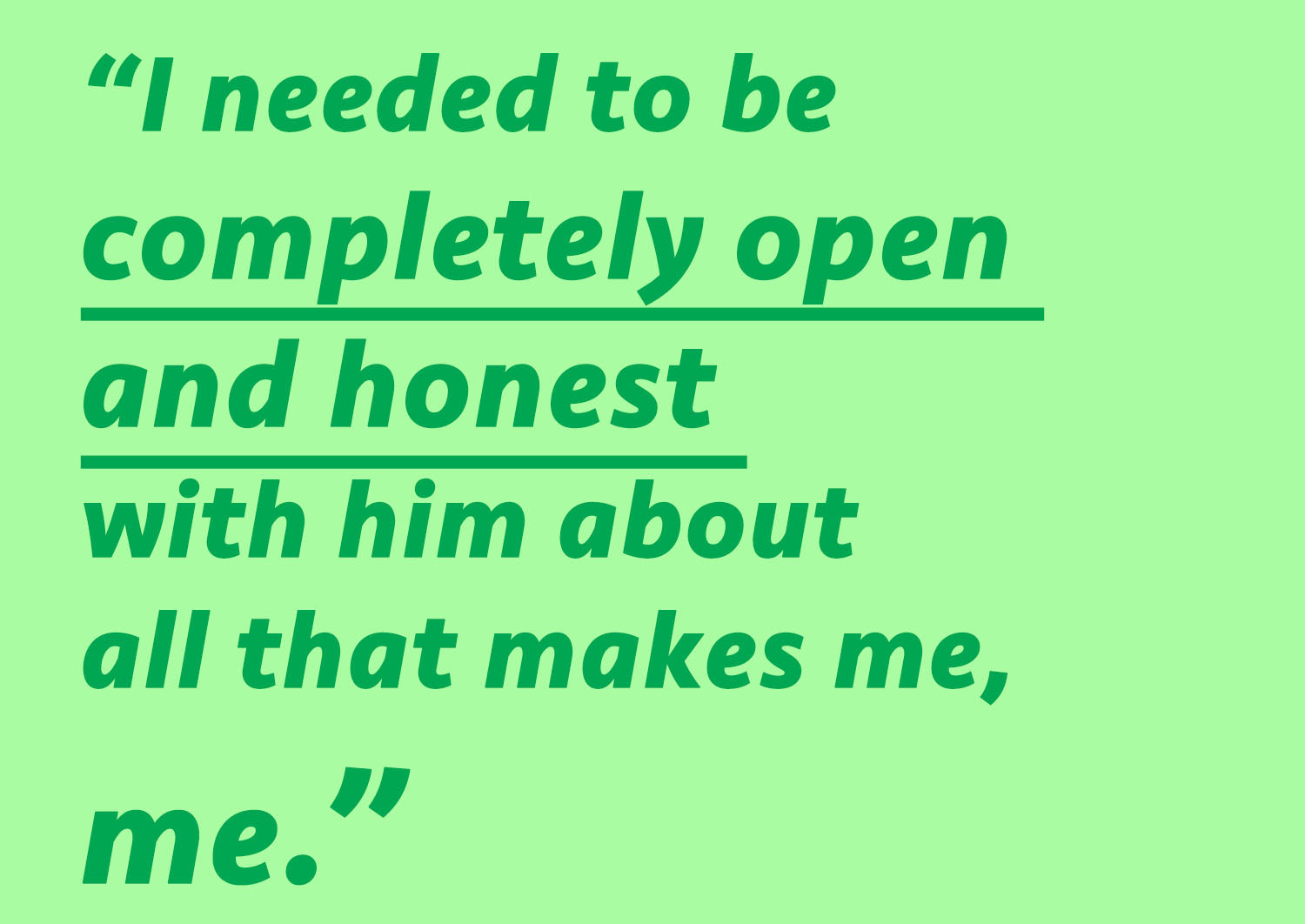
10. Help them rationalize their anxieties.
"My girlfriend talks me through my anxiety by asking questions like, Why did you feel this way? Is this realistic? and, Are you sure you heard/saw this? These questions remind me to always stay grounded and that the world isn't as critical of me as I am." —steviesue
11. Tell them (and show them) how much you love them.
"Little things make a world of difference, like how he calls me on Skype instead of on the phone because he wants to see me while we talk. Knowing how he sees me makes me feel so much more confident about my appearance and personality." —katiep4472f3c87
12. Listen to them, and remember what they say.
"My boyfriend and I have great communication. Since I have depression, I've made sure to tell him exactly how I want to be supported if I'm having a bad day. The best thing he did was listen and remember what I needed. Now, he always asks if there's anything he can do or if there's anything I want or need. He also reminds me that he's always here for me, and encourages me to talk to him about my depression and to not let it build up inside." —kcbrin
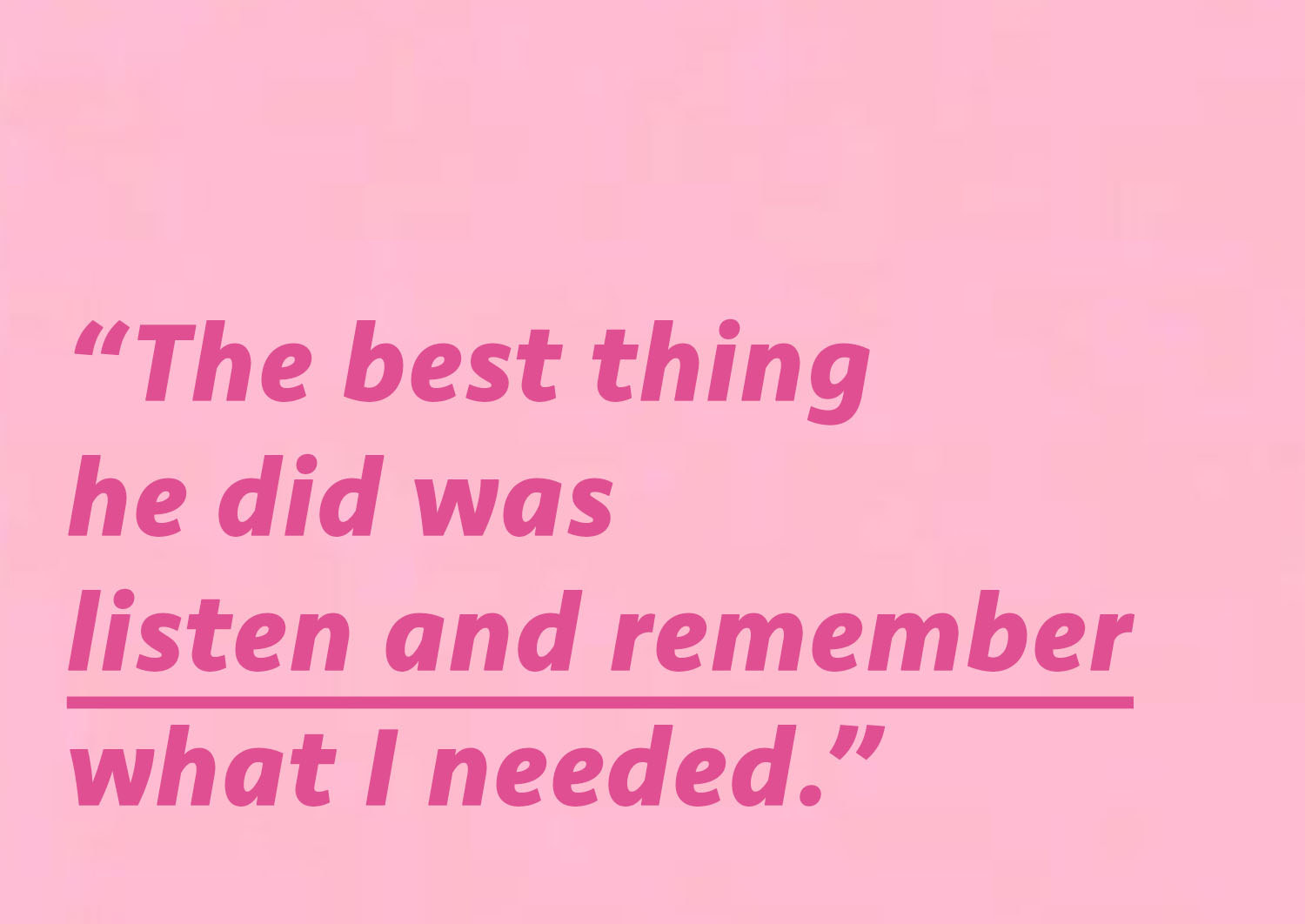
13. Get into a new hobby with them.
"My husband has gotten me into new hobbies that help relieve my stress and anxiety. He’s gotten me into crocheting, bought me book after book, and he’s gotten me several video games and puzzles. I can't thank him enough for always thinking of new things for me to do instead of pacing back and forth and getting stuck in my thoughts." —kittytoes
14. Encourage their passions.
"My husband encourages my creativity (like wanting to get bright pink hair) or hobbies (like adult coloring books)." —taramisu2
15. Give (or make) them little reminders to show them how much you care.
"My husband started working late, so he gave me a jar filled with little notes about how he feels about me. Now I take them out whenever I anxiously start to doubt the relationship or myself." —firelilyfairy
16. Be sensitive to their triggers.
"I have a difficult time with loud, unexpected noises, so before doing anything noisy — whether it's crushing a water bottle or turning on the vacuum — my significant other warns me with a "Noise alert!" It sounds silly, but it really means a lot to me." —a413307118
17. Talk to them about lighter things when they're down.
"My husband will talk about nothing in particular for as long as I need. I begin to focus more and more on what he is saying, and before I know it, my racing thoughts have slowed and I feel like I have a better grasp on my thoughts. My husband has so much patience with me. Being bipolar isn't easy, but having someone like him in my life makes my days better." —j4b0cf1602
18. Encourage them to seek professional help if they need it.
"My partner encouraged me to see a therapist. He's been in therapy for five years and uses skills he's learned to help me when I'm anxious." —pami45535c347
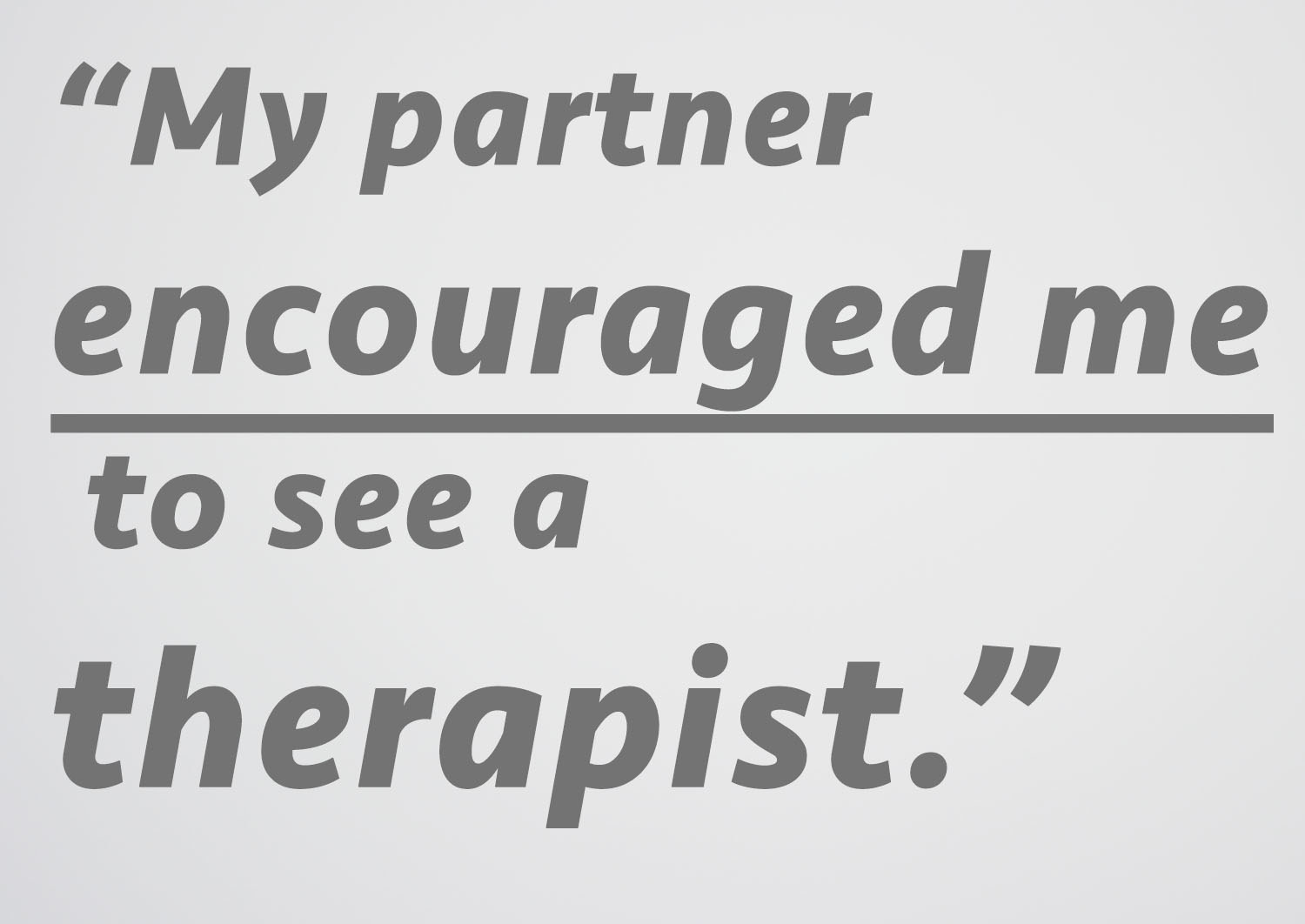
19. Learn how to support them in a healthy way.
"My boyfriend helped me learn the difference between supporting someone (healthy) and taking responsibility for their wellbeing (unhealthy)." —s4b8bc1fb7

20. And lastly, just have their back.
"I have Bipolar and Borderline Personality Disorder. The best thing my fiancé has ever done for me is not let me take my diagnosis and wallow in it. He is constantly helping me do research, he keeps my medicine and gives them to me weekly because I always lose my bottles, and he's called and booked me a therapy appointment because I was emotionally and physically unable to. Basically, he won’t let me become a diagnosis. To him, I am Courtney, a woman full of love and laughter, and that pesky mental illness is something that we'll combat and overcome together." —courtneyw4d1efa99d
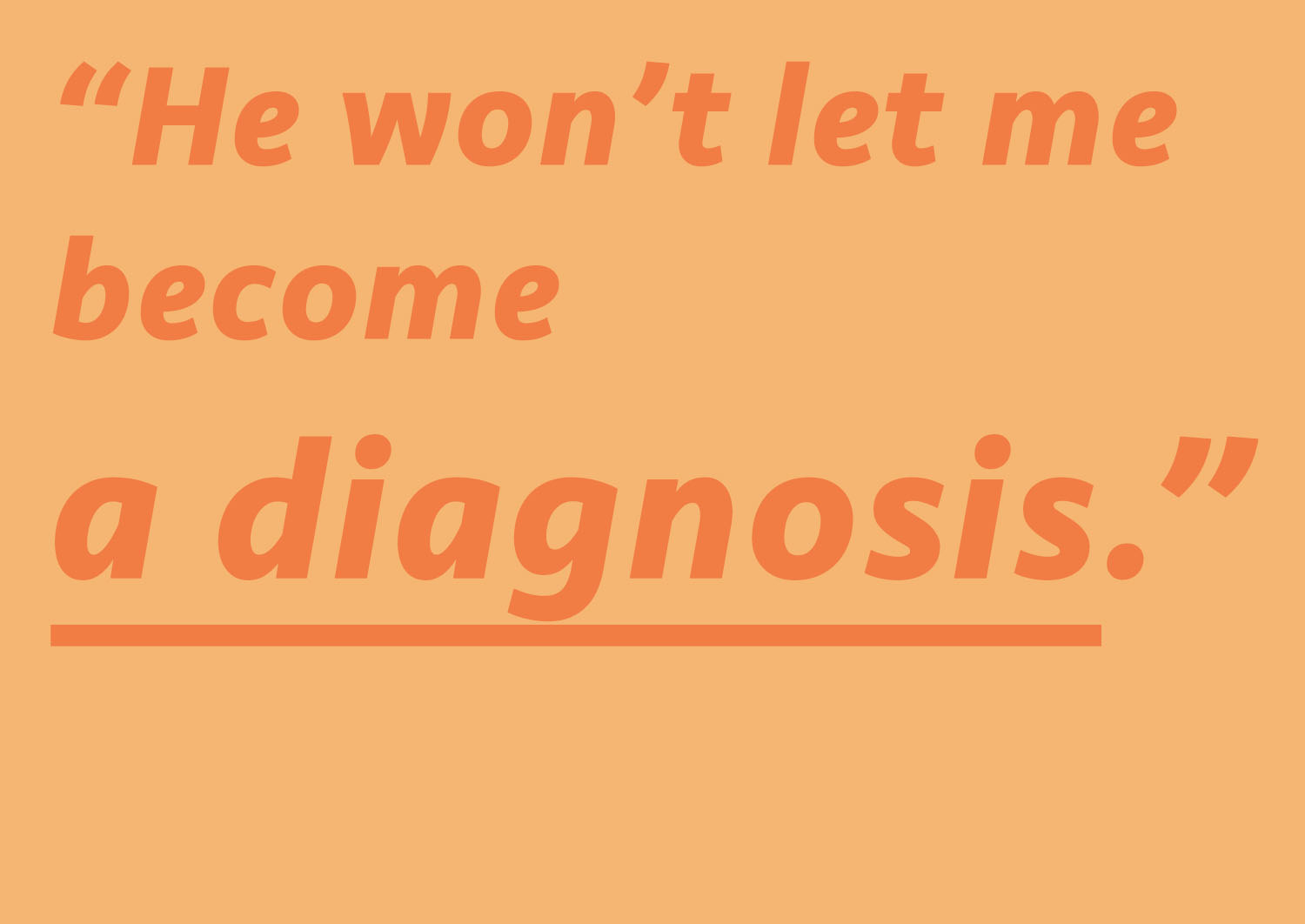
If you are thinking about suicide or just need to talk to someone, you can speak to someone by calling the National Suicide Prevention Lifeline at 1-800-273-TALK (8255) or by texting HOME to 741741, the Crisis Text Line. Suicide helplines outside the US can be found here.
